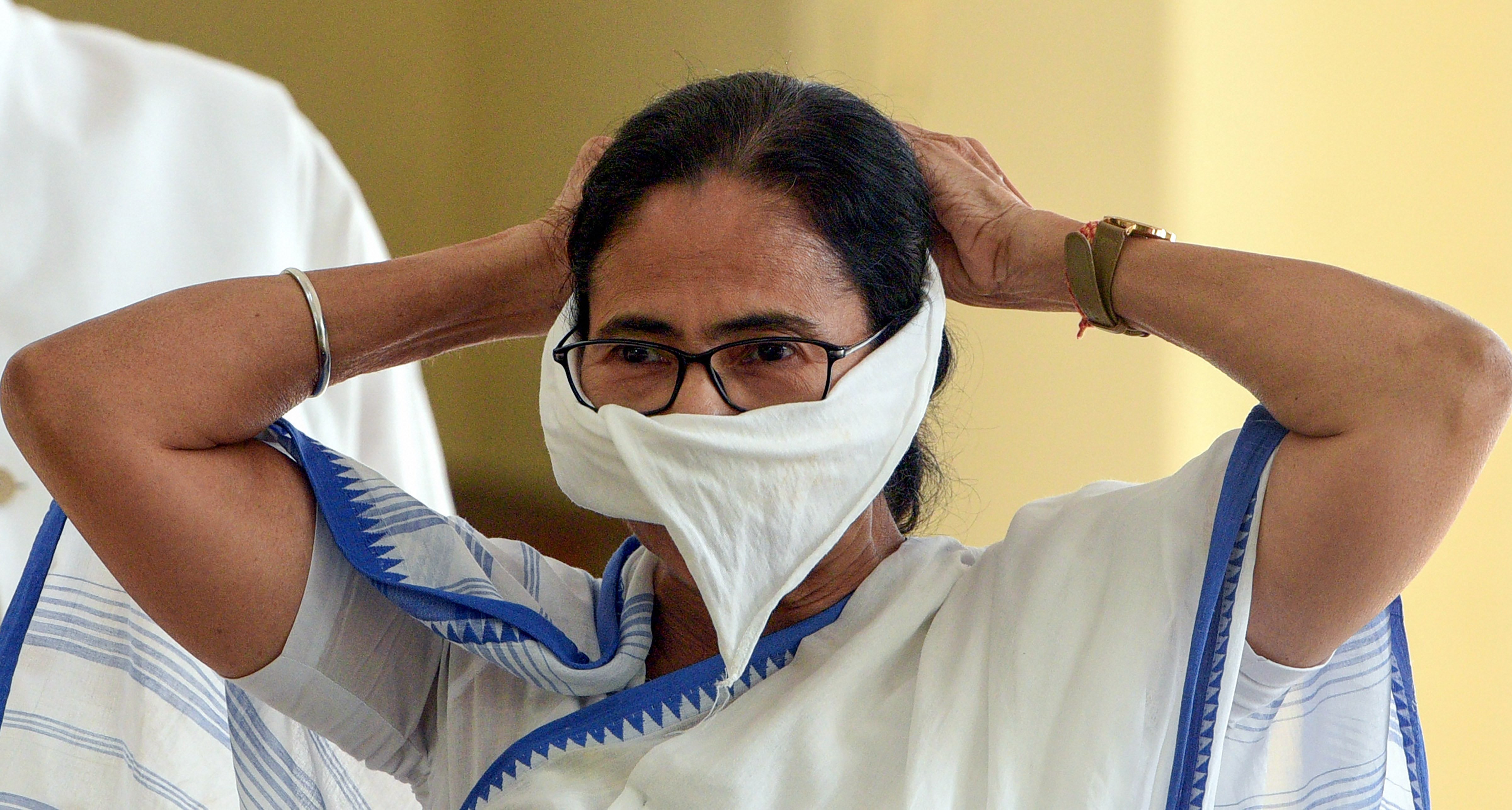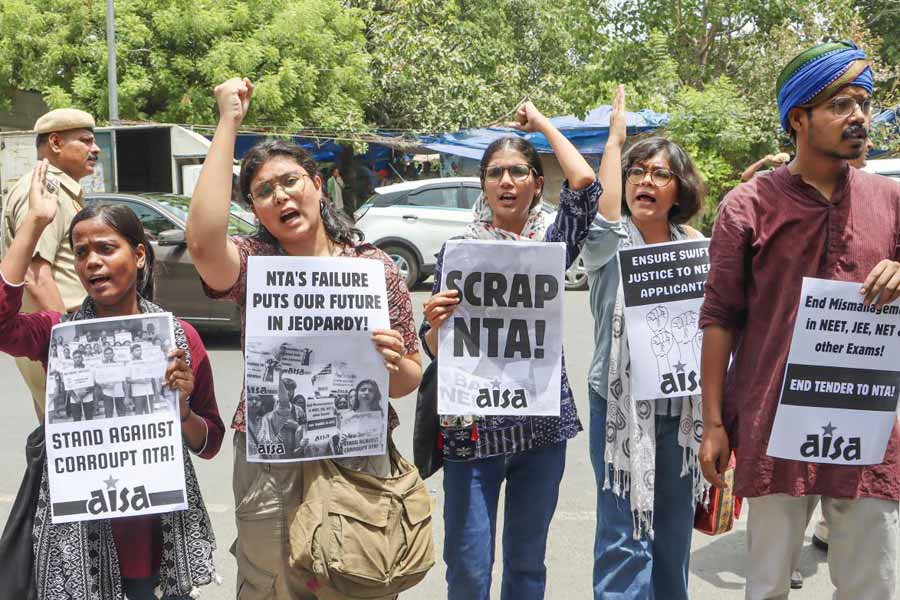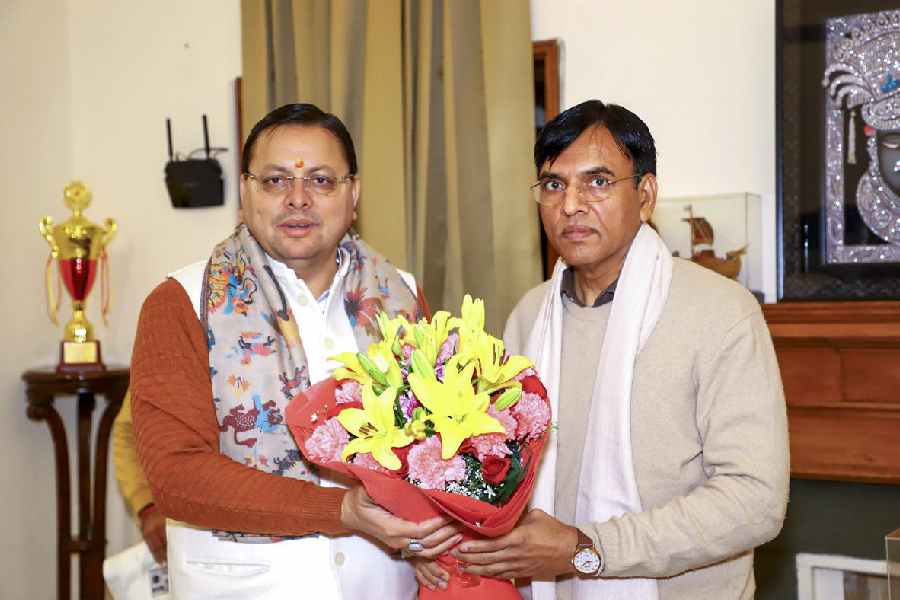The Bengal government is expected to issue a notification on Friday laying down the conditions for reopening plants in the green zones from Monday.
As industry awaits the specific norms, some investors said several units had already received approvals to restart operations after the Centre green-lighted partial resumption earlier this month.
But, the industrialists underscored, the units have been unable to restart yet because of the onerous protocols they need to comply with before their factories begin to hum again.
On Wednesday, chief minister Mamata Banerjee mentioned iron and steel units, jute mills, tea gardens and construction as some of the sectors that may be given further relaxation.
Mamata has been keen to strike a balance between life and livelihood while fighting the virus outbreak to restrict the damage it can cause to the state’s economy.
Following the earlier directive from the Centre, manufacturing units had been allowed to operate outside the containment zones if they adhere to strict social-distancing norms and follow standard operating protocols suggested by the Union home ministry.
Companies in Bengal had been informed they would be able to limp back to work from April 20, after which the state government faced a deluge of applications from industry to restart units.
As on April 28, sources said, 2,084 units had been granted permission to restart operations while 1,463 applications (mostly from units located in containment zones) had been rejected.
However, the common complaint from the steel, plastic, jute and tea industries has been that the government has permitted too few workers to return to work, something that would undermine the efforts to ensure a meaningful return to production.
For instance, four districts — East and West Burdwan, Bankura and Purulia — have over 200 steel mills that employ close to 1 lakh workers. Around 50 of them have received approval to restart operations but only with 50-100 workers.
“That is an insufficient number: we will be able to carry out only clean-up operations. For a manufacturing plant, we need at least 50 per cent of the workforce to rejoin,” said Vivek Adukia, president of the West Bengal Steel Rolling Mills Association.
The jute industry is in no better shape. Only 16 of the 60 mills have received permission so far, Indian Jute Mills Association (IJMA) president Raghavendra Gupta said.
“We can’t start production with this work strength. The mills have appealed to the government to allow more people to join,” Gupta said.
He said two units — one in Uluberia and the other in Budge Budge — had been allowed to work with 600 people.
Jute sacks, used in the procurement of grains during this time of year, are in short supply across India because of the lockdown. Most of the mills being in Bengal, that too in south Bengal where the outbreak has been severe, has complicated the situation.
A government official admitted that the number of workers allowed to return to work wasn’t enough, adding that the compulsions of containment were overriding the prudence of economics.
The state has assessed each application based on a determination whether it has the institutional capabilities to follow social distancing norms and adhere to the strict standard operating protocols (SOPs) laid down by the Union home ministry.
“In some cases, we had to withdraw permission after providing it. For now, we have to focus on containment. Yes, we are aware of the liquidity crunch the industry faces. But frankly, there are no easy solutions. No country in the world has worked out the right formula to emerge from a lockdown,” the official said.
The tea industry has also been allowed to work with only 25 per cent of the workforce, in contrast to 50 per cent in Assam. The industry fears further crop loss if more people are not allowed to resume work.
“We have already lost close to 100 million kg of production in Bengal and Assam. If the gardens cannot deploy more workers during the flushing season, which starts in May, both the size of the crop and the quality of the tea will suffer,” said Vivek Goenka, chairman of the Indian Tea Association.
While jute, tea and steel mills are unable to deploy enough workers, some sections of industry say there aren’t too many in a position to return to work.
Ramesh Rateria, Indian Plastic Federation (IPF) president, said half the workforce had left for their homes in neighbouring states.
“Even if the government gives its approval, not enough workers will be able to report for work. Many workers have returned to their villages. We are operating with only those who live close to the units,” he said.
Bengal has about 3,000 plastic units in the organised sector. Only 200 of them have received permission to restart.
Power dues
Industries across the board said they would struggle to pay the wages for April as the units had earned no revenues during the lockdown.
“We have no liquidity. The faster the government allows us to start operations the better. We will then have some cash flow to take care of the workers,” said G.K. Sharan, chief mentor of Super Smelter, a company that produces TMT bars. IJMA’s Gupta echoed the sentiment.
Also, industrial units, who are all bulk consumers of electricity, are balking at the prospect of having to pay the fixed demand charge on electricity consumption. The units are liable to pay an amount to electricity producers even if they do not consume power.
Shankarlal Agarwal, president of the West Bengal Iron and Steel Manufacturers Association, said the power producers should either waive the charge or defer it. “We simply cannot pay now,” he said, adding that the bills for large units would run into crores.
Ashok Jajodia, former IPF president, said some other states had already waived the charge.
While industry and the government grapple with a myriad problems as they look to restart industrial units, they will soon have to confront the real problem: the lack of demand in the economy.
“We may talk about starting operations. But there has to be demand for goods that we sell. Let the shops open, let the customers come back. Everything will fall into place only over an extended period of time,” Agarwal said.
A task force on economic affairs -- set up by the Bengal government against the backdrop of the Covid-19 outbreak-- has proposed spending Rs 1.52 lakh crore on segments like MSME, self-help groups, agriculture, fisheries and social sector schemes over six months.
THE CONCERNS
Problems so far while emerging from lockdown
⦾ Only handful of workers are being allowed to rejoin. At least 50% needed
⦾ Production yet to start on a large scale
⦾ Units may not have capability to maintain social distancing
⦾ Wage payment crisis looms large
⦾ Industry struggling to pay power dues











